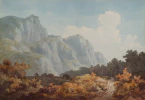Strayed''s Hiking Chronicles

The Healing Power of a Long Hike
There is something magical about the wilderness. As I walk along the winding path, surrounded by towering trees and a carpet of lush greenery underfoot, I feel alive in a way that is hard to describe. It’s as if the weight of the world has been lifted from my shoulders, and I am free to simply be.
I remember the first time I embarked on a long hike. I was nervous, unsure of what to expect. But as the miles stretched out before me, I began to settle into a rhythm. The rhythm of my feet pounding the earth, the rhythm of my breath, the rhythm of my thoughts.
There is something about being in nature that is deeply calming. It’s as if the world slows down, and I am able to see things with fresh eyes. I notice the way the sunlight filters through the leaves, casting dappled shadows on the ground. I hear the sound of birdsong, the rustle of leaves in the breeze.
But it’s not just about the scenery. There is something about the act of walking that is therapeutic in and of itself. As I move my body, I feel the tension and stress begin to melt away. The worries that seemed so all-consuming back in the real world begin to fade into the background.
Of course, there are challenges along the way. The blistered feet, the sore muscles, the moments of doubt and frustration. But there is something about pushing through those challenges that is deeply rewarding. It’s as if with each step, I am proving to myself that I am capable of more than I ever thought possible.
And in the end, when I emerge from the wilderness, I feel renewed. Recharged. Ready to face the world with a newfound sense of strength and toughness.
If you’re feeling overwhelmed by the stresses of modern life, I encourage you to try a long hike. It doesn’t have to be a grueling 2,000-mile trek like Cheryl Strayed’s famous Pacific Crest Trail journey. Even a short walk in the woods can work wonders for your mental and physical wellbeing. Give it a try and see for yourself the healing power of nature.
Cheryl Strayed’s Journey of Self-Discovery: Walking the Pacific Crest Trail
Walking the Pacific Crest Trail, a 2,650-mile trek from Mexico to Canada, takes a lot of courage, determination, and strength. For Cheryl Strayed, it was more than just a physical journey; it was a journey of self-discovery.
The trail brought challenges that tested her limits and pushed her to her breaking point. She had to overcome physical obstacles, such as the scorching heat of the Mojave Desert and the freezing temperatures of the Sierra Nevada Mountains. She had to battle blisters, exhaustion, and hunger. But perhaps the most difficult challenge was facing the demons of her past.
Strayed had lost her mother to cancer, and the pain of that loss had sent her spiraling into a self-destructive cycle of drug use and promiscuity. Walking the Pacific Crest Trail was a way for her to confront her grief, to find herself, and to heal.
As she walked, Strayed found solace in the natural beauty around her. She marveled at the vastness of the desert and the majesty of the mountains. She encountered all sorts of wildlife, from rattlesnakes to bears, and felt a connection to the world around her.
But the trail was not just a physical or emotional journey for Strayed; it was also a spiritual one. She found herself thinking life’s big questions and searching for meaning in her experiences. She learned to let go of her past and to live in the present.
Walking the Pacific Crest Trail was a transformative experience for Cheryl Strayed. It gave her the strength to move forward and to become the person she was meant to be. Her journey is a testament to the healing power of nature and the toughness of the human spirit.
The Body Teaching Us: What We Learn from a Long Walk
Walking is often thought of as a simple and mundane activity, but for those who have taken on a long walk or hike, it can become a transformative experience. When we embark on a journey that requires us to rely on our own two feet, we learn valuable lessons about ourselves and the world around us.
One of the most significant things we learn from a long walk is the importance of perseverance. Walking for hours or even days on end requires a great deal of mental and physical endurance. We learn to push through fatigue and discomfort, and we develop a sense of toughness that carries over into other areas of our lives.
Walking can also teach us about the power of mindfulness. When we are out in nature, surrounded by trees, rocks, and other natural elements, we become more attuned to our surroundings. We notice the small details, like the way the sun shines through the leaves or the sound of a babbling brook. This mindfulness can help us become more present in our daily lives and appreciate the beauty of the world around us.
Another lesson we learn from walking is the importance of self-care. Walking long distances puts a great deal of stress on our bodies, and we must take care to listen to our bodies and address any issues that arise. We learn the value of proper nutrition, hydration, and rest, and we become more aware of the signals our bodies give us.
Finally, walking can teach us about the power of community. Whether we are walking alone or with others, we are all part of a larger community of walkers and hikers. We learn to appreciate the support and camaraderie of others on the same journey, and we develop a greater sense of connection with the people and the world around us.
In summary, walking is not just a physical activity but an opportunity for personal growth and transformation. Through perseverance, mindfulness, self-care, and community, we can learn valuable lessons about ourselves and the world around us. So, put on your walking shoes and take a step towards discovering what your body can teach you.
From Backpacking Novice to Expert: Cheryl Strayed’s Journey
When Cheryl Strayed started her journey on the Pacific Crest Trail, she was a backpacking novice. Her lack of experience caused her to make several mistakes along the way, including packing too much weight and wearing boots that were too small. However, with each step of her journey, she learned valuable lessons that transformed her into an expert backpacker.
One of the most important lessons Cheryl learned was the importance of listening to her body. As she hiked, she became attuned to the signals her body was sending her, such as when she needed to rest or drink water. She also learned to identify the warning signs of potential injuries, such as blisters or sore muscles, and took proactive measures to prevent them from worsening.
In addition to listening to her body, Cheryl also became an expert in the art of packing. She realized that every item she packed had to serve a specific purpose, and anything that didn’t was simply added weight that slowed her down. She also learned to pack her gear in a way that balanced the weight and made it easier to carry over long distances.
Through her journey on the Pacific Crest Trail, Cheryl Strayed evolved from a novice backpacker to an expert. Her experiences provide valuable lessons for anyone who wants to embark on a similar journey, including the importance of listening to your body, packing wisely, and learning from your mistakes.
Discovering Real Work Through Memoir Writing: Cheryl Strayed’s Journey
Memoir writing can be a powerful tool for self-discovery and healing. Cheryl Strayed discovered this firsthand through her own experience. After struggling with addiction, the death of her mother, and the end of her marriage, Strayed found herself at a crossroads in her life.
It was during this time that she decided to embark on a solo hiking trip along the Pacific Crest Trail, which ultimately became the subject of her memoir, “Wild.” Writing the book allowed Strayed to reflect on her experiences, confront her demons, and gain a better understanding of herself.
Through the process of writing “Wild,” Strayed found her true calling as a writer. She recognized the power of storytelling and how it can connect people and heal wounds. Her success as a writer has led to many other opportunities, including becoming the advice columnist for “The Rumpus” and writing the best-selling book “Tiny Beautiful Things.”
Strayed’s story serves as an inspiration to those who may be struggling to find their true calling. By taking a chance on writing and sharing her story, she was able to discover her real work and create a career doing what she loves. Her journey shows us that sometimes the most difficult experiences can lead to the most rewarding opportunities.
Cheryl Strayed’s Journey to Becoming an Author: From Waitress to MFA
Cheryl Strayed’s path to becoming an author wasn’t a linear one. Before she became the bestselling author of “Wild,” Strayed worked a variety of odd jobs, including being a waitress, a sales clerk, and a teacher. It wasn’t until later in life that she discovered her passion for writing and pursued it as a career.
Strayed had always enjoyed writing, but it wasn’t until she took a creative writing class in college that she realized she could turn her passion into a career. After college, Strayed worked as a waitress while she wrote in her free time. She eventually applied to graduate school and was accepted into the Master of Fine Arts (MFA) program at Syracuse University.
In the MFA program, Strayed honed her writing skills and began to develop her unique voice as an author. She also faced some challenges, such as being a young mother and dealing with the grief of her mother’s death. However, these experiences only added to her writing and helped her to become the writer she is today.
After completing her MFA, Strayed continued to work on her writing, submitting articles and essays to various publications. It wasn’t until her memoir “Wild” was published in 2012 that she became a household name. The book chronicled her solo hike along the Pacific Crest Trail and was a critical and commercial success, selling millions of copies and inspiring a generation of readers to hug adventure and self-discovery.
Strayed’s journey to becoming an author is a testament to the power of perseverance and following one’s passions, no matter where they may lead. Her story shows that anyone can become an author if they are willing to work hard and never give up on their dreams.
Discovering the Universal Thread in Cheryl Strayed’s Wild Journey
Cheryl Strayed’s memoir “Wild” has captivated readers all over the world, and for good reason. It’s a powerful story of one woman’s journey through grief and self-discovery, as she hikes over 1,100 miles of the Pacific Crest Trail. But what makes “Wild” so universal, so relatable to so many people?
Part of it is Strayed’s writing style - her honesty, her humor, her ability to turn a phrase. But the heart of the book lies in its themes: loss, healing, toughness, and the power of nature to transform us.
Strayed writes openly about her struggles with addiction, infidelity, and the death of her mother. She doesn’t hold back on the messy details of her life, and in doing so, she makes it clear that she’s not perfect. But what makes her story so compelling is that, despite her flaws, she’s determined to keep moving forward.
As Strayed hikes deeper into the wilderness, she learns to rely on herself in ways she never thought possible. She faces physical challenges, like blisters and dehydration, but she also confronts her own inner demons. Along the way, she learns to forgive herself for past mistakes and hug the person she’s becoming.
“Wild” is a reminder that we all have the power to heal ourselves, no matter what obstacles we face. It’s a call to hug our imperfections and to keep moving forward, even when the path ahead seems uncertain. And it’s a celebration of the ways in which nature can help us connect with ourselves and the world around us.
Cheryl Strayed’s journey may be unique, but the themes she explores in “Wild” are universal. We all have our own paths to travel, but the lessons we learn along the way can connect us in ways we never imagined.
Reconnecting with Your Past Self Through Memoir Writing: Lessons from Cheryl Strayed
Memoir writing can be a powerful tool for reconnecting with your past self, as Cheryl Strayed discovered during the writing process of her book, Wild. By revisiting her memories and experiences on the Pacific Crest Trail, Strayed was able to reenter previous versions of herself and gain new insights and perspectives.
Through memoir writing, we have the ability to reflect on our past experiences, examine our choices and actions, and gain a deeper understanding of who we are and who we have been. By exploring our past selves with empathy and honesty, we can learn valuable lessons and insights that can help us navigate our present and future.
But the process of memoir writing is not always easy. It requires vulnerability, honesty, and a willingness to confront difficult emotions and experiences. For Strayed, the writing process was often painful, but ultimately transformative.
In addition to the personal benefits of memoir writing, it can also serve as a powerful tool for connection and understanding between individuals and communities. By sharing our stories and experiences, we can build empathy and understanding, and create space for growth and healing.
Cheryl Strayed’s journey of memoir writing serves as a testament to the power of storytelling and the importance of reconnecting with our past selves. Through her work, we are reminded that our past experiences do not define us, but rather shape us into the person we are today.
Conclusion
Cheryl Strayed’s journey and experiences offer valuable lessons for all of us. From her healing power of hiking to her path towards becoming a successful writer, Strayed’s story reminds us of the importance of perseverance, self-discovery, and growth.
By pushing herself out of her comfort zone and tackling the challenges of the Pacific Crest Trail, Strayed not only found physical strength but also emotional and mental fortitude. Her experiences taught her the power of toughness and determination, which is something we can all learn from.
Furthermore, Strayed’s writing has touched countless readers and given a voice to those who have struggled with similar hardships. Her memoir “Wild” is a testament to the power of vulnerability and honesty, and it encourages us to re-enter our previous selves, learn from our past, and move forward.
Overall, Cheryl Strayed’s journey is a reminder that we all have the power to change our lives, no matter how difficult it may seem. Through her story, we can find inspiration to pursue our own paths, overcome challenges, and find our true selves.











